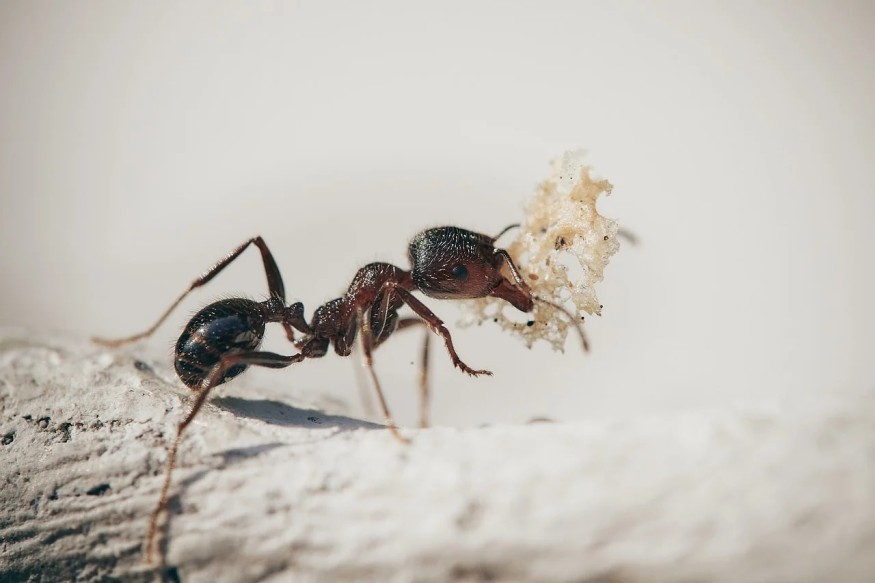Ants ingest their formic acid to disinfect their bodies against bacterial infection. This was the finding of a study by a research team from the University of Bayreuth and MLU or Martin Luther University in Halle-Wittenberg.
The research
The research team has found that the formic acid secreted by ants can destroy harmful bacteria present in their food, which reduces the possibility of contracting the disease. Also, the formic acid influences the gut flora of the ants.
The study was recently published in eLife.

The uses of formic acid
Formic acid is known to be among the simplest of organic acids. Many ant species produce it via a special abdominal gland.
According to MLU Institute of Biology's Dr. Simon Tragust, it has long been assumed that the acid's only purpose was to deter predators such as birds and other insects.
Tragust is a co-author of the new study together with the University of Bayreuth's Professor Heike Feldhaar.
Two years ago, he also showed how ants utilize the acid in caring for their brood, such as disinfecting them and preventing the proliferation of infectious fungi.
Observing the ants
The study was conducted by observing the behavior of the ants. The researchers found that when the ants ingest food and water, they follow up with the cleaning of their hindquarters.
They reasoned that this cleaning behavior was not associated with digestion since it was also done after drinking.
The researchers then conducted several experiments that showed that the ants disinfected themselves internally. Tragust said that ingesting the acid increases the ants' chance of surviving, especially after consuming food items containing many pathogenic bacteria.
This benefit was also accorded to other individuals because ants also pass food from mouth to mouth, particularly to their mates. If the acid isn't present to kill the food's infectious bacteria, this behavior will lead to a potentially significant spread of bacterial infection. The ant that ingested acid before receiving food from another ant's mouth will decrease contracting infection probability.
Tragust says that the behavior may be a means of preventing infections from spreading in a colony.
Lower gut microflora
The study also explained why several ant species harbor so few bacteria within their guts. The only ones that are present are bacteria that are primarily resistant to acid.
Tragust says that acid swallowing serves as a filter that influences the microbial composition of ants' intestines. Ants are known as one of the few animals with highly acidic stomachs.
Some vertebrates, including humans, also have acidic stomachs, according to Tragust. However, unlike the ants, stomach acids in humans are directly produced in and by the stomach. However, they serve the same purpose of killing harmful microorganisms in food and influencing the gut microbiome.
It is still unknown how formic acid works. Still, it is being used, together with similar organic acids, in the animal feed not to disinfect them but as agents against microbes that cause bacterial infection.
Check out for more news and information on Insects on Nature World News.
© 2026 NatureWorldNews.com All rights reserved. Do not reproduce without permission.





